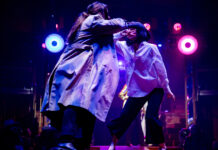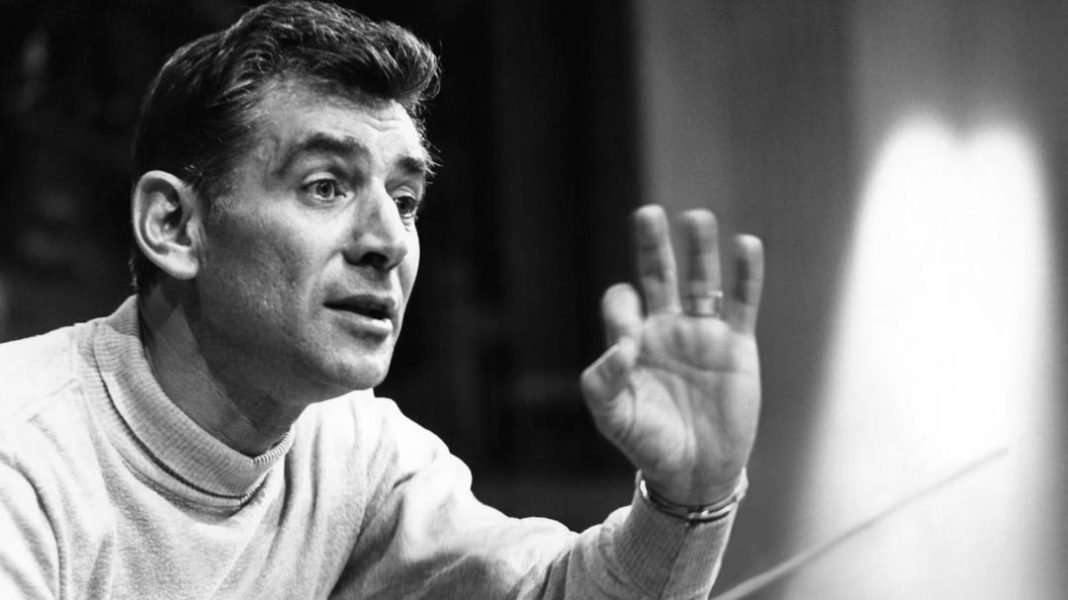Long before being the son or daughter of a celebrity meant you were also a celebrity, Alexander Bernstein had to share his father, Leonard with the world. The composer, conductor, educator and performer was easily one of the most important, and highly visible, public figures in the world. This year his 100th birthday is being celebrated with concerts, performances and a touring exhibition called Leonard Bernstein at 100. That exhibit is currently on view at the Skirball Cultural Center through September 2nd. One person who has an intimate relationship with the exhibit and the man himself is his son, Alexander.
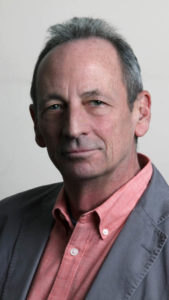
I spoke with Alexander Bernstein briefly at the opening of the exhibit and more extensively on the phone a week later. We discussed Leonard Bernstein the composer, the teacher and the father.
When you started to speak at the event last week you appeared to be getting a little emotional. How emotional are these centennial celebrations for you?
It’s pretty emotional. Obviously it’s exciting and it’s fun and thrilling just to be a part of all these events. But at the same time it’s very moving just to be constantly remembering my dad and my mom. And my years growing up with them. How could it not be an emotional experience? Every different piece I listen to brings out different memories. Every interview, every exhibition I attend, different things come up. It’s quite emotional – mostly happy.
You grew up having to share him with the world. What were the challenges of doing that when you were younger and what are the challenges for you today?
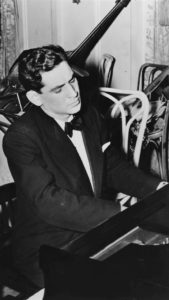
What was great was even though he was famous and traveling a lot in the world the way he was, when he was home he was really home. Between my mother and his siblings and all their friends that would always come over, we had a really rich family life: games, sports, great conversations and meals. He usually worked late at night when everybody else was asleep. So he was available for fun and talk and being a dad. Also he would take us along often on tours. That felt like I was sharing him with the world. It really never felt like we were missing out on something. It felt like we were really joining in something extraordinary.
Today I think it’s important to talk about him and look at his legacy as an educator and as a social activist. I think those are very important. Along with his conducting and composing, his teaching and humanitarianism, he was an interesting, complicated guy and people, to the extent they are interest in that, it’s fine with me.
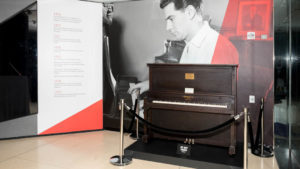
What do you think he would make of all the attention his 100th birthday is receiving?
He sure never complained about getting attention. There was a time later in his life when the attention became a burden and he felt like he was more of an industry than a person making music. At one point he said, “I hate Leonard Bernstein,” meaning the branding of Leonard Bernstein. But in the main he certainly enjoyed attention. And he wanted to meet everyone in the world. He would have been thrilled about his music being played so much now. He was so deeply a composer and to have his music being championed all over the world has been fantastic.
Much of that music wasn’t initially embraced the way I’m sure he wanted, like Mass. Have time and perspective allowed us to more fully appreciate some of his work?
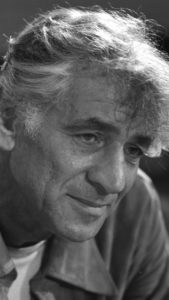
I think so. Absolutely. I think the timeliness of it still says a lot for its presence and that it doesn’t seem dated. Stephen Schwartz (Wicked – and someone who collaborated with Bernstein on Mass), mentioned this a couple months ago. He thought [Mass] might seem dated in the future when they were writing it. But he realizes now that the use of various musical forms and styles that are central to the piece is actually not so controversial these days and more prevalent than not. Most composers are mixing style and genres and so if it premiered today, nobody would be complaining about that part to be sure.
You and archivists have no doubt scoured all of this things over the years. Are there any pieces of music that might see the light of day?
Probably not. There might be sketches for things, but, there are certain songs that are tied up because of licensing rights and stuff like that – the Brecht play – that I don’t think that will ever get published or performed. But I think it’s pretty much all out there. [Bernstein had worked on a Brecht musical that was abandoned.]
Some of his letters were published in 2013. In one letter, sent to his sister Shirley in 1950, he said “I’ve been engaged in an imaginary life with Felicia.” When material like that gets discovered does that make you re-evaluate the family you grew up with and/or your relationship with your parents?
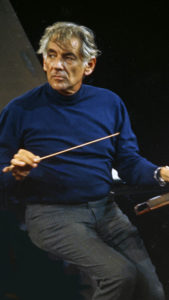
No, because I think when he wrote that letter that’s what he felt. But there were so many other times when it was exactly the opposite and he was totally committed and in love. He was just such a man of the moment. Nobody was fooling anybody, but they really did adore each other. That’s what I always go back to. They had a lot of fun together.
Is there anyone in music today who you feel carries the best traditions of performance and education that your father did?
Oh, that’s an impossible question. He was unique in the combination of musicianship and his ability to communicate and charisma and personality and the technology of the time and the perfect time for television. [It was] a good time to be a celebrity when it wasn’t such an industry.
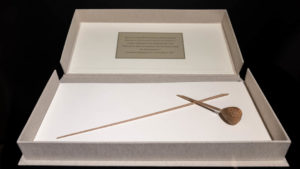
(courtesy of the New York Philharmonic Archives and Leon Levy Digital Archives)
I could throw out a bunch of names, but each one would be a different facet and there’s the music and education part obviously. Marin Alsop comes to mind. Gustavo Dudamel, Simon Rattle – all working with kids constantly. Michael Tilson Thomas and so many more. And Lin-Manuel Miranda also is such an inspiration on the Broadway side. It’s just impossible to find someone with his particular combination of traits. We probably won’t see his like again.
Note: The Skirball Cultural Center will be holding a variety of events tied to this exhibition. You can find details about those events in the link above.
Main Photo Credit: Leonard Bernstein, c. 1960, courtesy of the Leonard Bernstein Office, Inc.





